Continuing our China exploration, we’d like to share with you this poignant article and photostory by Italian photojournalist Luca Vasconi. This is his second article for us, after this beautiful photo essay on Varanasi.
The millenary Great Wall, the charm of the Summer Palace and the Forbidden City that overlooks the endless expanse of Tiananmen Square, with Mao Tse Tung’s mausoleum in the centre. Beijing’s marvels are endless.
In the whole of China, historical and natural attractions have become a symbol of greatness, of power and of the ancient history of the nation. Places and heritage that can be used to spread the message of a Greater China are preserved, enhanced, sponsored for tourism and economic development.
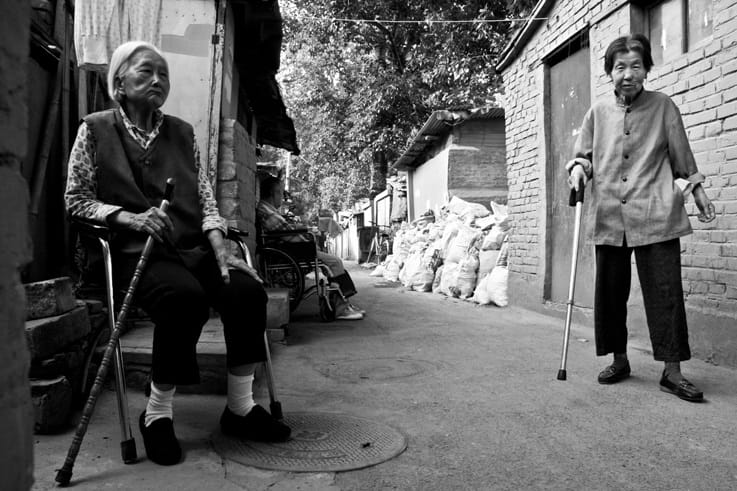
An overwhelming wave of modernity is sweeping away speculative small historical and social realities; centuries-old traditions, historical architecture, and emotional ties are being lost for good.
Beijing is now a dynamic modern city. The 2008 Olympics have placed the Chinese capital under the eye of the world, giving even more energy to a metropolis with an eye on the future. New gleaming skyscrapers, luxury hotels, modern suburbs, huge shopping malls, and sprawling six-lane expressways were born in a frenzy.
Who has paid the price for all this? What happened to the hundreds of thousands of people who lived in the hutong, the old historic districts of Beijing, swept away by bulldozers in the name of progress and Usain Bolt’s records?
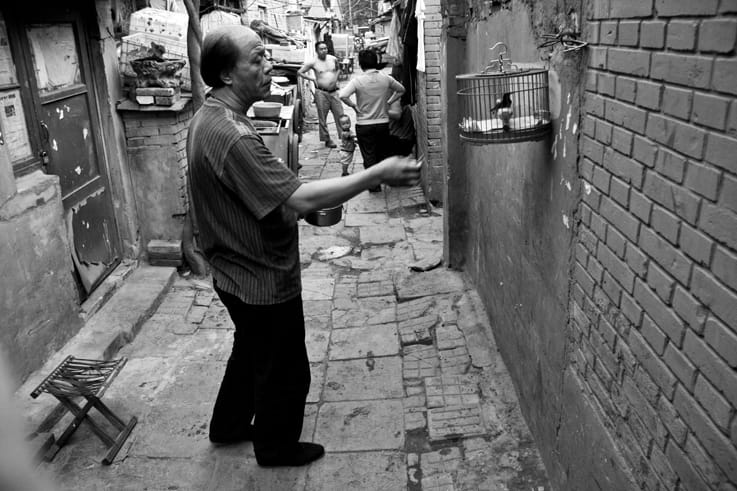
Are there still any small social realities, places that represent the traditional soul of the Chinese capital? Is it still possible for a traveler to break out of the commercial web that envelops everything, and to immerse themselves in the way of life of ordinary people, custodians of secular traditions?
Is it still possible to discover the soul of old Beijing? Does this soul even exist?
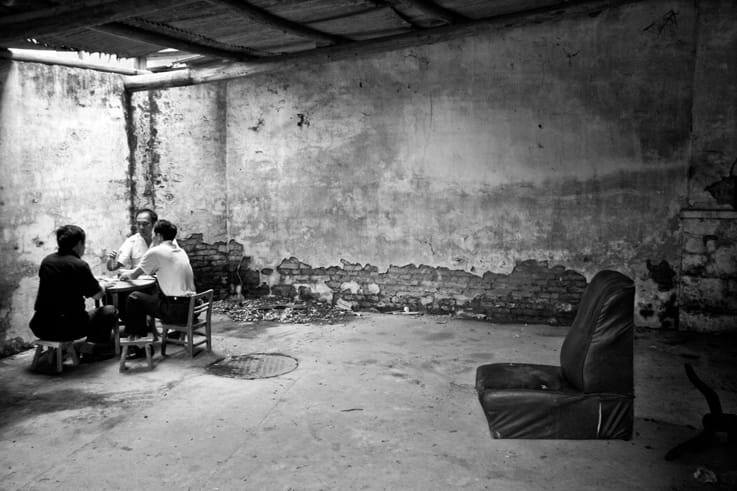
These thoughts and questions whirled around my head for days until my arrival in Beijing, after weeks spent in the land of the Dragon, crossing China by train from west to east.
They were very intense and interesting days in which, among beautiful discoveries, I also noticed disturbing alarm bells. Whole historical centres of small towns were being razed to the ground to build impersonal cities, stripped of their character, invaded by western brands and shops built for tourists and wealthy Chinese. Entire new cities were being built in a few months, with rows of buildings of the same height, built with the same materials and with the same colours.
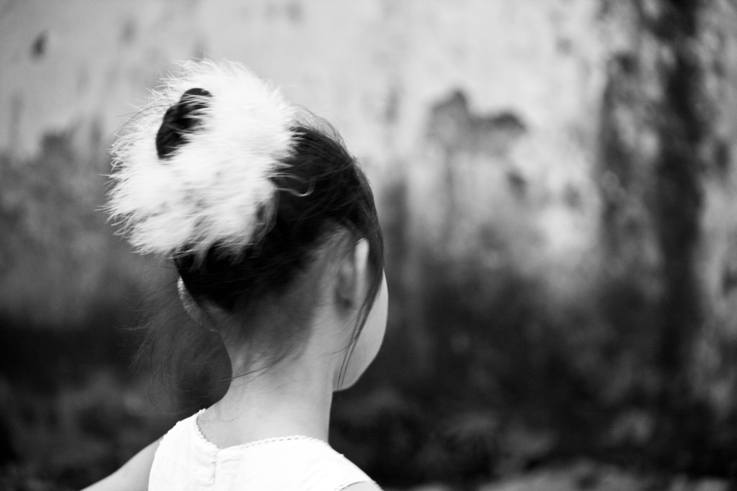
During those long rail journeys I had the chance to talk with several fellow travellers, mostly young Chinese people who spoke English. The most common word by far was ‘business’. It’s understandable, a normal reaction for people that until relatively few years ago lived in hardship, poverty and ideology.
The desire to make money, to improve their personal situation, is, of course, more than legitimate. Yet, it hardly ever seemed accompanied by reflections over the environmental or social impact of such fast-rate development. I was frightened.
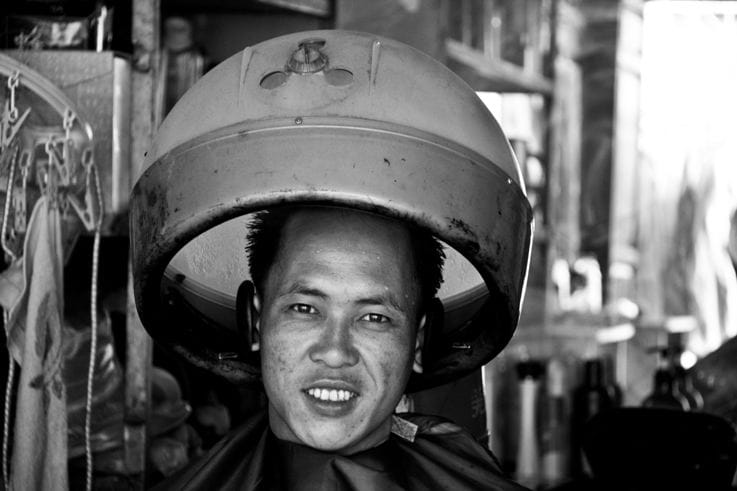
I had the impression of a country with no balance. From nothing to too much, without the social consciousness to stop when necessary. During Mao’s ‘Cultural Revolution’, individual differences and legacies of the past were destroyed. Today, the diversity and traditions which survived the Cultural Revolution, the historical and cultural fabric which should bind a nation, are slowly being disintegrated for a cultural assimilation based on business, on success, on the longing for an Armani suit and an iPhone 5.
Before arriving in the capital, I stopped at glitzy Shanghai. I loved its magnificent skyline. A wonderful blue sky accompanied me during all the days of my stay.
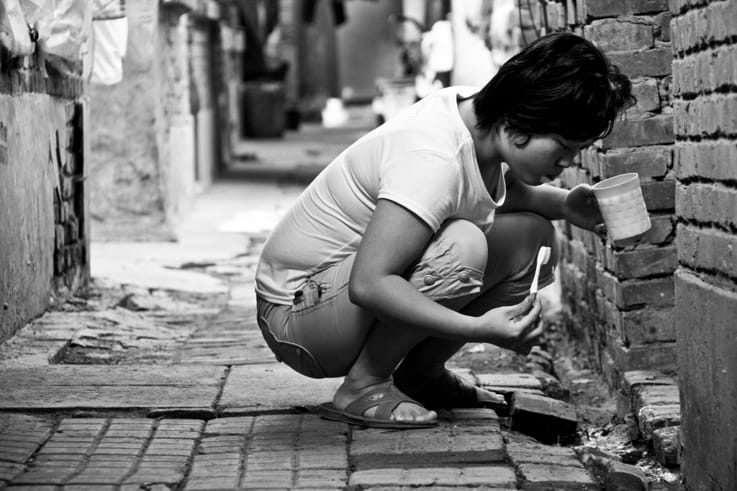
On the other hand, Beijing welcomed me with a typical mouse-grey sky, pollution at record levels, as per usual in recent years.
I was amazed by the size of the Wall, by the immensity of Tiananmen Square. I was surprised by the fact that even today, people queue up to visit the embalmed body of Mao, paying tribute to the Great Leader depositing huge wreaths.
There was another place I wanted to visit in Bejijng. As an old Chinese saying goes: if you do not enter a hutong, you do not know Beijing.
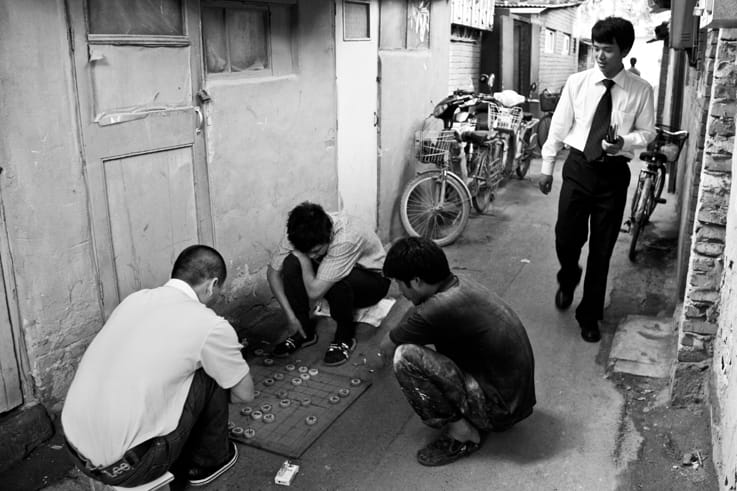
I wanted to take a step back in time, before the economic boom that has transformed the Chinese capital. I wanted to visit the hutong, where the narrow streets of the imperial city intertwine to form a maze of siheyuang, historical homes on one floor, overlooking a small courtyard.
Many of Beijing’s surviving hutong have been converted, cleaned and restored for tourism. They are now home to artists’ studios, hosting exhibitions and cultural events. Interesting, but where was real life?
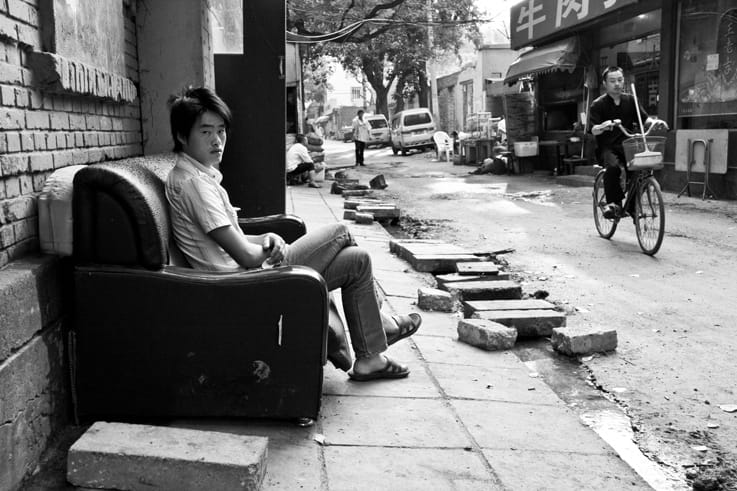
I decided to give up and walk back to my hostel.
I had almost reached my destination when the smell of fried food from a street corner attracted my attention. I followed my stomach and my instinct, and… no more than three hundred meters from my hostel, hidden by a couple of tall buildings, I found myself as if by magic in the middle of a hutong. Chinese people of all ages were busy, cooking, talking, playing, laughing, observing the flow of life sitting on sofa beds in the street.
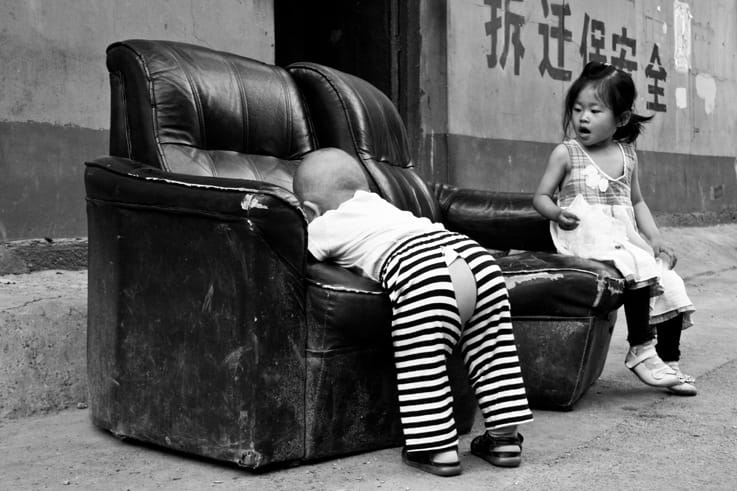
It was the atmosphere of days gone by, where life follows a slow pace. Where poverty is a reality, but there is also the desire to carry out small social rituals, to cultivate human relationships.
I spent the next day, my last in Beijing, in that neighbourhood. It was the most beautiful and exciting day of my whole time in China.
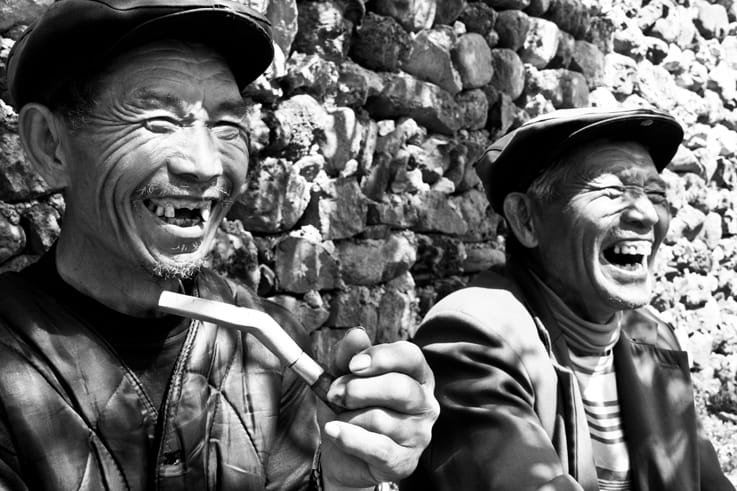
‘My’ hutong was swept away by bulldozers, about six months after I left.
Its people have suffered the same fate of hundreds of thousands before them. They have been spread across small, impersonal modern apartments in the city outskirts. Today they live in rows of buildings of the same height, built with the same materials and with the same colours. Perhaps with more comfort, certainly with less soul.
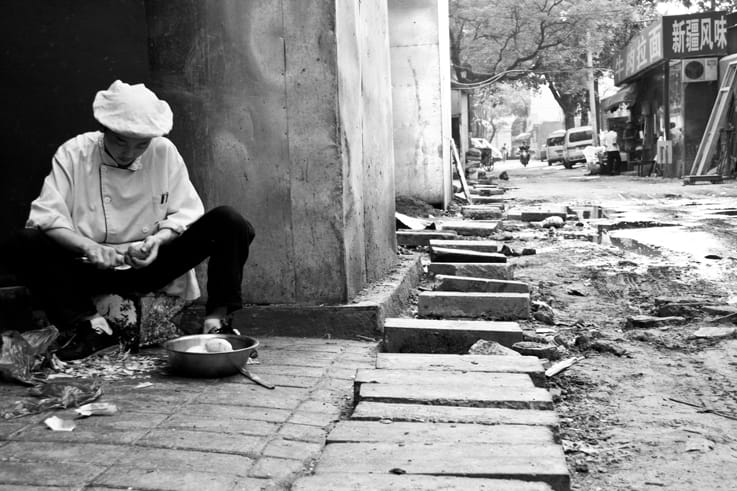
The photos I took that day are the memory of hundreds of lives, of traditions and atmosphere that are now lost.
Welcome to the last hutong, a world that no longer exists.
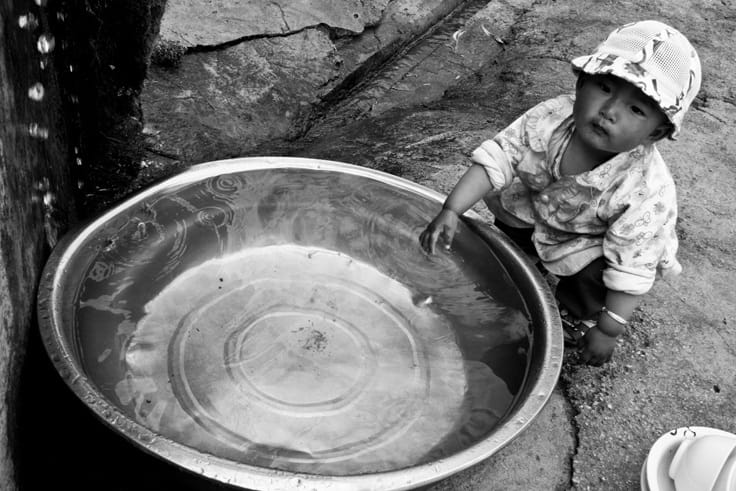
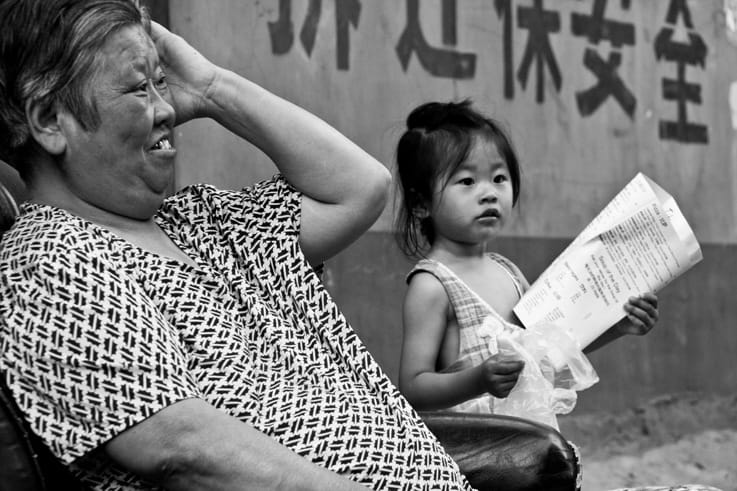

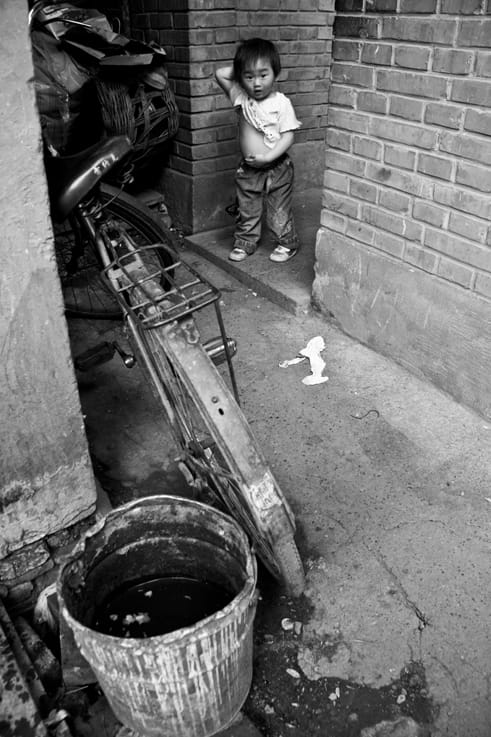
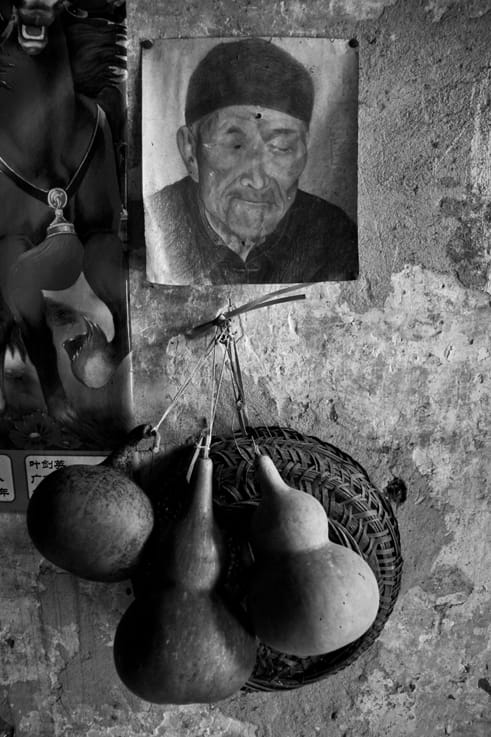
For more of Luca’s work, check his website and Facebook page and follow him on Twitter
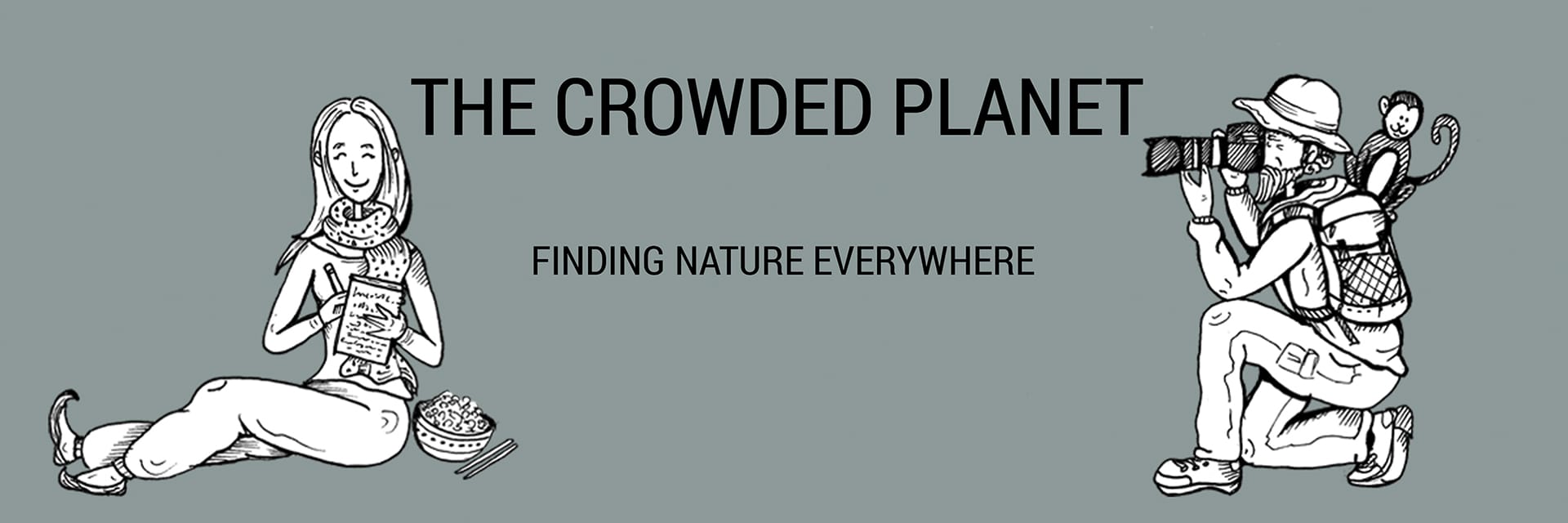
This is such a beautiful post and such a beautiful story. Too often we have to search out the places of days gone by. Thankfully some are still there, we just have to look.
Wow, what a place. You’ve captured the place so well. All of that outdoor living is kind of unreal to me. Like teeth brushing, just wow.
Wow! Impressive photos, I love black and white photography and these shots are lovely, well done Luca!
First off, your photos are fantastic! Each one manages to capture a perfect moment that suit this piece beautifully. We, of course, have poverty here in North America but I have never seen anyone brush their teeth in the street. And yet despite their poor living conditions, they still make it work and seem to enjoy life as best they can. It’s too bad that the world has become so material and turns to bulldozing these places rather then spend the time and effort to help them succeed. I’m glad you had a chance to experience this- sounds like it was a great opportunity.
I stayed in a Hutong Hostel while in Beijing, such an amazing (although quite claustrophobic) experience! 😀
Wow!!! Those are some terrific shots. I love the candid of the little girl and her grandma.
Interesting article. I’ve always been curious about Beijing but also hesitant if we should attempt going there, with all these things going on…
What a beautiful, well written story and fabulous photos. I haven’t been to Beijing but I’d love to experience it and really dig deeper into the culture.
I love street photography, it is so powerful!
Wow, Margherita! This collection of photos is really quite striking and moving. The black and white really plays into this as well. I found that photo of the woman brushing her teeth in the street particularly moving.
Great photos! It really looks like it was a great spot–it’s too bad that all this culture and character is being torn down and replaced. Glad you got to enjoy it while it was there, but sad to hear it’s gone!
such beautiful photos. i especially love the kids playing with the street couch. so raw and unpretentious.
I was just in Beijing and loved the Hutongs too. It’s hard because they’re SO impractical for a modern world where running water is sort of necessary…. But hopefully the fact that foreigners adore them will help preserve some of them. I think it interesting how many expats move into them now.
I had the same thoughts during my tour through Western China and down through Tibet. The cities seemed to climb skywards regardless of their impact on historical sites and the surrounding environment…literally going up in months; just as you said.
It’s funny how you mentioned that the one common word and, sadly, most popular was business. I received the same reaction whenever I seemed to ask the opinion of locals about Chinese business development. Although they were extremely friendly and helpful, I hope one day the people see value in cultural heritage as well as the beauty of the outdoors enough to promote a healthier way of life.
What an amazing experience that must have been to spend time there! I love how you captured the emotions and feelings of the locals in your photography. Unfortunately we appear to be seeing more and more of these types of places vanishing before our eyes – it’s sad but a harsh reality!
Wow. What a touching a beautiful story. I was originally born in Beijing and have been back several times to visit family. Everytime I go back, it’s different and more and more modern. I don’t know why but I never thought about what happens to the old districts in order to make that modernization happen. I guess I’m lucky to have family there, so I have always been able to experience a purely local side of Beijing (they live away from the modern city centers). Many of the pictures look like very familiar scenes.This is a great guest post with beautiful pictures!
Stunning photography and story. Thanks for sharing.
What a spectacular post. Our country manager in Beijing absolutely loves exploring the hutongs here. They’re such a fascinating look into China’s past – especially when the country is sprinting so quickly into the modern age. It’s also incredible how many sub-cultures crop up in these tiny communities. Did you get the meet the Cricket Master?